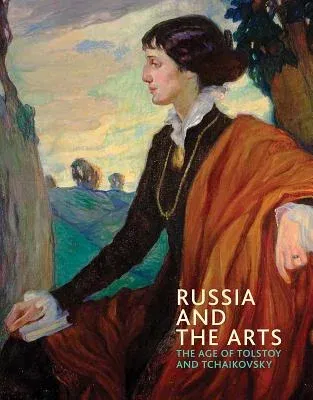Russia and the Arts: The Age of Tolstoy and Tchaikovsky explores the
history of Russian portraiture between 1867 and 1914, a time of great
cultural vibrancy in the country and a golden age of the Russian
portrait. While Tolstoy and Dostoevsky were publishing masterpieces such
as Anna Karenina and The Brothers Karamazov and Mussorgsky,
Tchaikovsky and Rimsky-Korsakov were taking Russian music to new
heights, Russian art was developing a new self-confidence. The
penetrating Realism of the 1870s and 1880s was later complemented by the
brighter hues of Russian Impressionism and the bold forms of Symbolist
painting; these styles were applied to portraits of prominent thinkers,
writers, scientists, artists, actors, composers and musicians by the
most outstanding painters of the day. This volume traces the period's
developments in Russian art through the collection of the Moscow State
Tretyakov Gallery, founded in 1856, itself a product of this same moment
of cultural flourishing. Portraiture was a major part of the
collection's mission from the late 1860s, when founder Pavel Tretyakov
began to commission and acquire portraits guided by two principal
values: the historical role of the sitter and the artistic value of the
portrait. Beautifully illustrated with key works from the State
Tretyakov Gallery, Russia and the Arts highlights some of the
extraordinary developments that took place in the arts in Russia in the
years before World War I.

